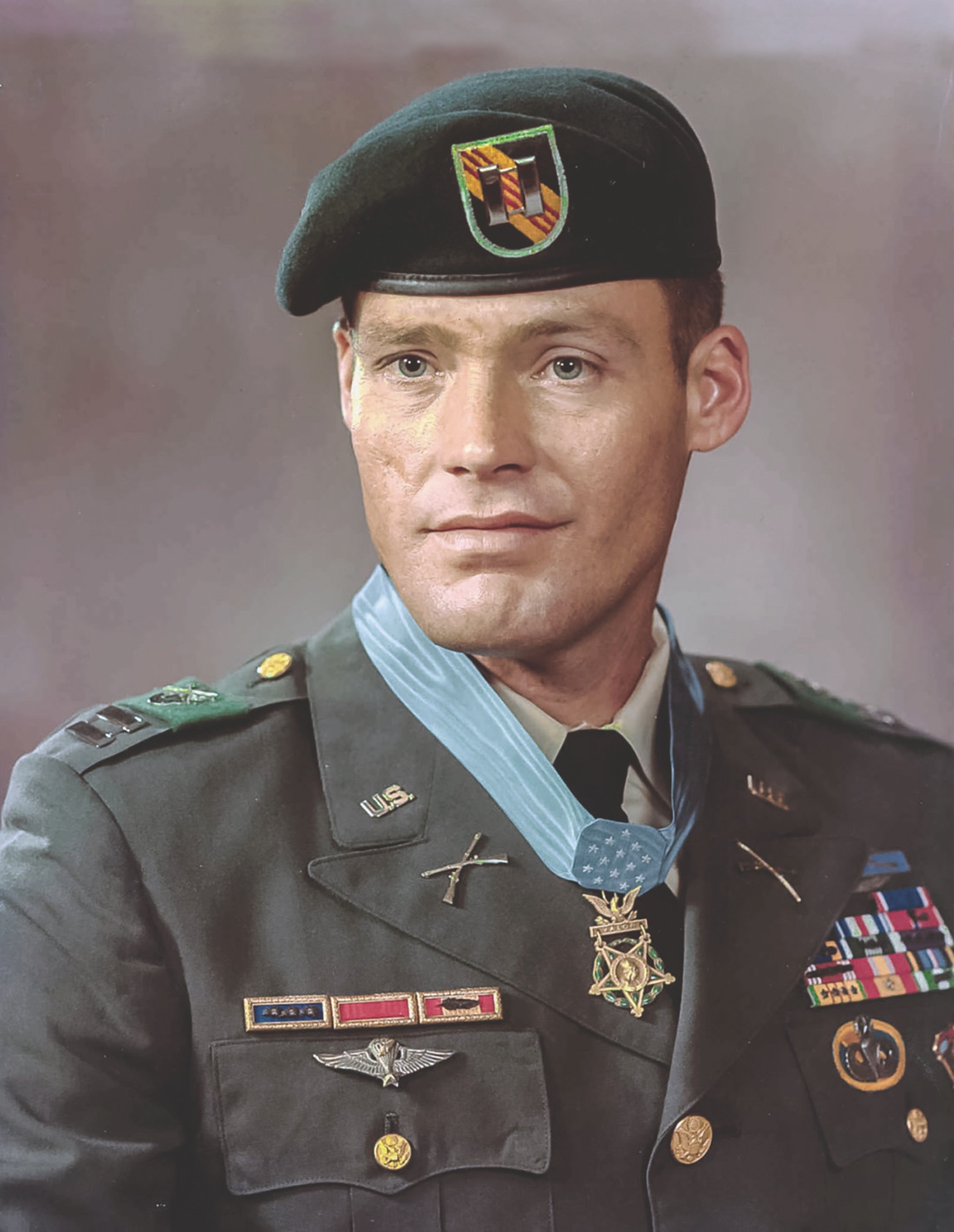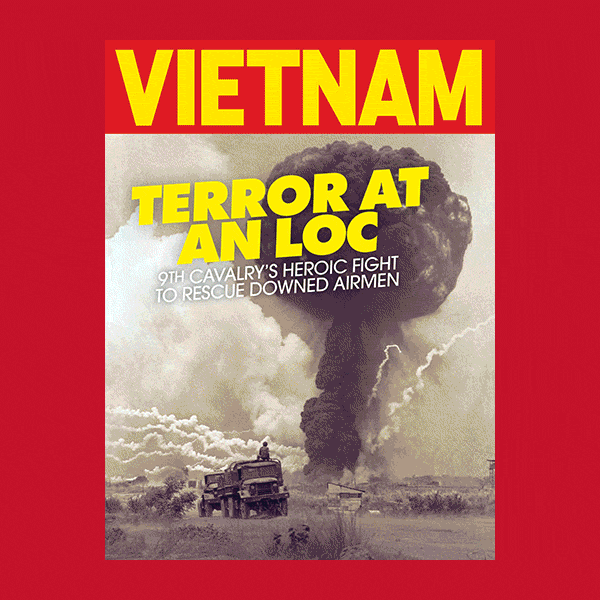Robert Lewis Howard was the consummate warrior. Wounded 14 times in 54 months, he earned eight Purple Hearts and was the only Army member in Vietnam to earn all three top combat decorations: Medal of Honor, Distinguished Service Cross and Silver Star.
Howard, born in Opelika, Alabama, in 1939, enlisted in 1956 and deployed to Vietnam in July 1965 with the 101st Airborne Division. After the first of four Vietnam tours, he went through Special Forces training and returned in 1967 as a sergeant first class in the 5th Special Forces Group (Airborne).
On Nov. 27, 1967, he was an adviser to a reconnaissance patrol that discovered an enemy bunker complex near the Laotian border. Moving to a point right next to one bunker and pinned down by machine gun fire only 6 inches above his head, Howard threw a grenade into an opening, killing those inside. Later, coming under more machine gun fire, he grabbed an anti-tank weapon, “stood up amid a withering hail of bullets, fired his weapon, and completely demolished the position,” states an award citation. Howard was nominated for the Medal of Honor but received the Distinguished Service Cross.
In a battle deep in enemy territory Nov. 12-20, 1968, Howard was wounded repeatedly in fighting that resulted in heavy casualties requiring an evacuation of several men. A medevac helicopter was shot down in flames, and a wounded Howard dashed some 150 yards to the crashed chopper to rescue a trapped pilot. Three hours later, another helo arrived for the wounded, but Howard refused to leave the battle. He was nominated for the Medal of Honor but would be awarded the Silver Star.
Howard displayed more heroics a few weeks later. On Dec. 29, 1968, Green Beret Sgt. Robert F. Scherdin was part a 10-man team helicoptered into the area where Laos and Cambodia intersect with South Vietnam. The team split up, and both elements were attacked. Scherdin, leading four Montagnard tribesmen in the rear patrol, was severely wounded, unable to stand. Enemy fire forced the patrol to withdraw, leaving Scherdin behind.
The following morning Lt. James Jerson was inserted with his Special Forces commando platoon and a small group of Montagnards to rescue Scherdin. Howard was the platoon sergeant. As Jerson and Howard moved up a small hill, a remotely detonated mine exploded. Howard fell wounded. Upon regaining consciousness, he saw his lieutenant seriously wounded, his own weapon destroyed and the platoon under attack by a two-company force.
Howard, wounded in the legs and hand by a grenade, moved through a hail of fire to reach Jerson and began dragging him to cover while administering medical aid. A bullet struck a magazine on Jerson’s ammunition pouch, causing several rounds to explode. Ducking for cover, then quickly returning to his lieutenant’s side, Howard stuffed one of Jerson’s legs into his armpit and dragged the officer to nearby undergrowth. Both men hid as an enemy patrol passed by to engage the main body of the platoon.
Howard then moved downhill, where he found a fellow Green Beret and obtained a .45-caliber pistol. The two men fought their way to Jerson and got him to the unit’s perimeter. For 3½ hours and despite additional wounds, Howard “crawled from position to position, administering first aid to the wounded, giving encouragement to the defenders and directing their fire on the encircling enemy.”
Finally, a helicopter rescued the platoon. Jerson died of his wounds, and Scherdin was missing in action, his remains yet to be recovered. For the third time, Howard was recommended for the Medal of Honor. President Richard Nixon presented the medal on March 2, 1971.
Howard died Dec. 23, 2009, and was buried at Arlington National Cemetery.
Doug Sterner, an Army veteran who served two tours in Vietnam, is curator of the Military Times Hall of Valor, the largest database of U.S. military valor awards.
This article appeared in Vietnam magazine’s February 2020 issue.






